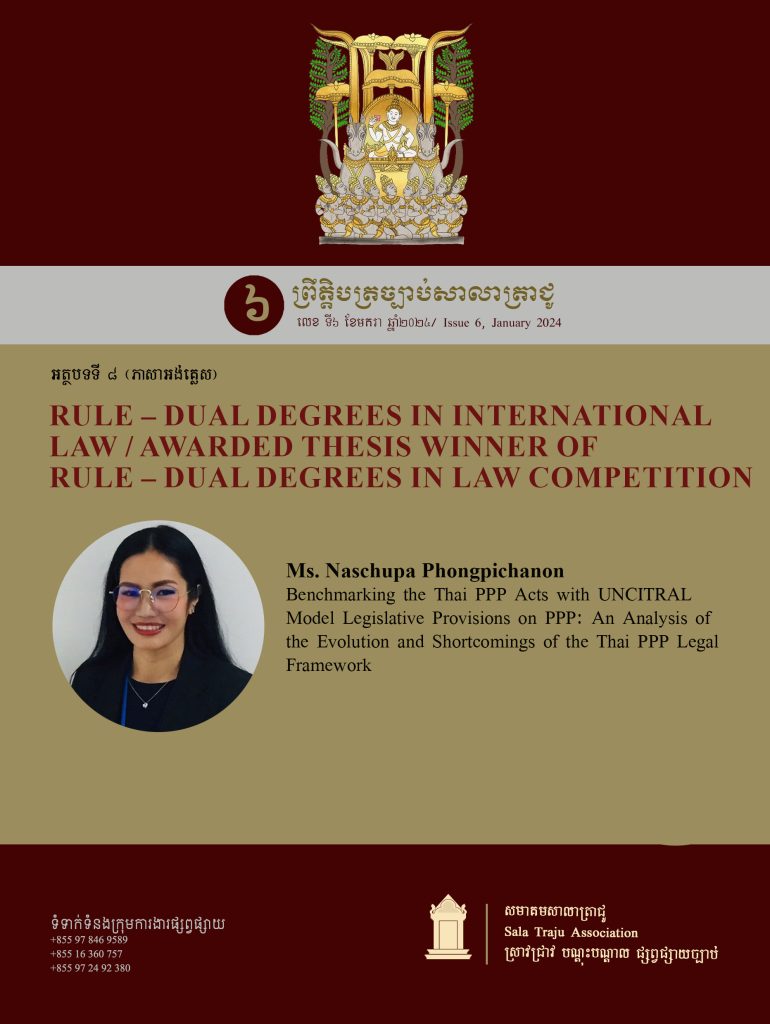
ABSTRACT
This thesis aims at evaluating Thailand’s PPP legal framework and its evolution over time in order to assess its efficiency at preventing disputes and mitigating risks. The thesis proposes to investigate three consecutive PPP acts: the Act on Private Participation in State Undertaking (PPSU) enacted in 1992, the Act on Private Investment in State Undertaking (PISU) enacted in 2013 and the current Public Private Partnerships Act (PPPA) enacted in 2019. In order to assess the effectivity of these successive acts, the thesis uses the methodology of benchmarking, consisting in comparing the provisions of each act in the light of a ‘golden standard’, the UNCITRAL model legislative provisions on PPP, so as to identify missing or incomplete provisions on each aspect of a PPP law, including its general principles, project initiation, bidders’ pre-selection, selection process and proposals’ evaluation, contract agreement, implementation and dispute settlement mechanisms. The benchmarking methodology allows for the attribution of a conformity score to each act, thus measuring the act’s proximity with the golden standard as evidence of its coherence, thoroughness and efficiency. The PPPA is also compared with former acts in order to assess progresses achieved and areas of improvements to consider for future amendments. The thesis establishes that although the PPPA has successfully remedied to major past shortcomings in the PPSU and PISU, some important amendments should be considered by the Thai lawmaker, especially the introduction of mandatory social and environmental impact assessments at the project’s initiation phase, the integration of provisions establishing a bidders’ pre-selection phase and provisions aimed at increasing the transparency and fairness of the selection and implementation phases, amongst others.
